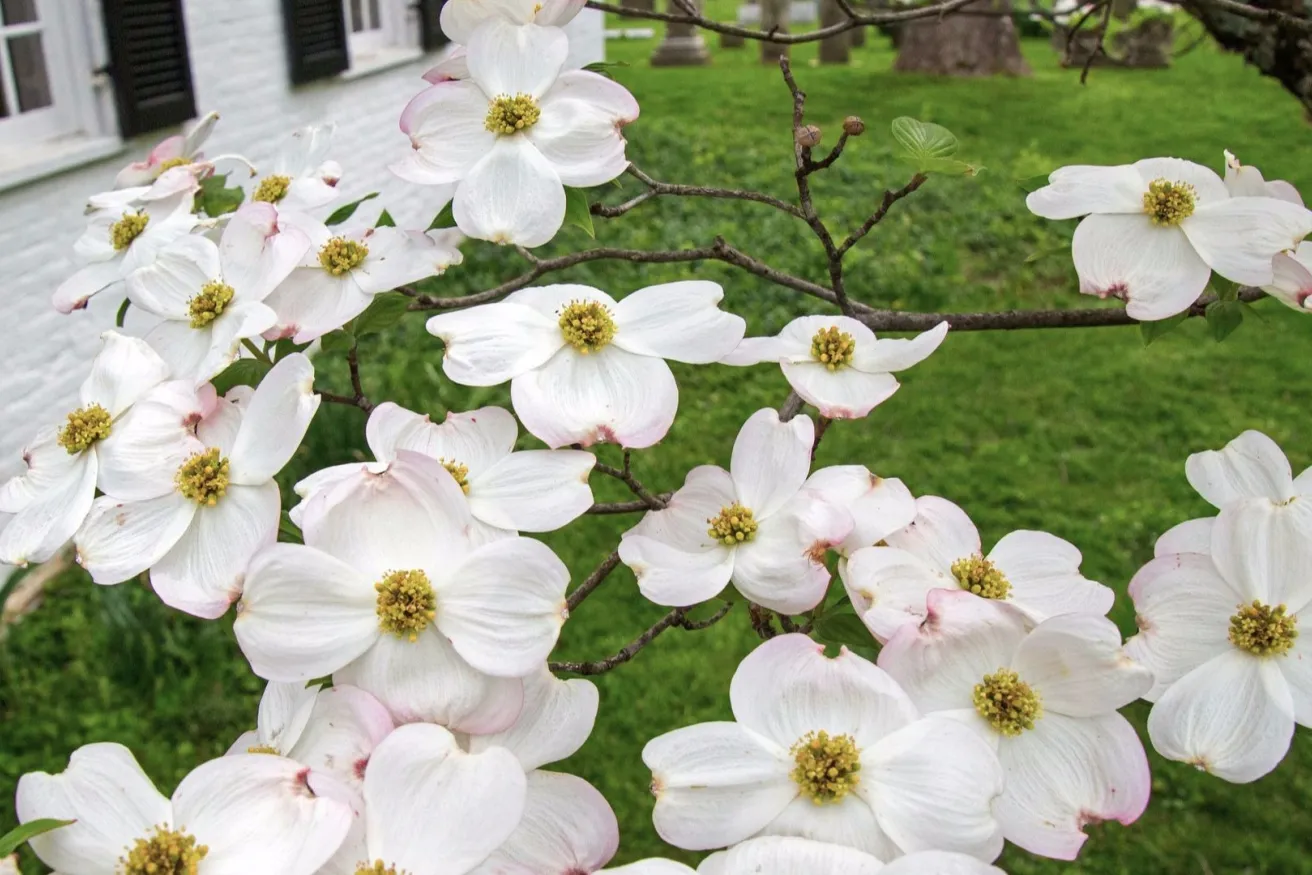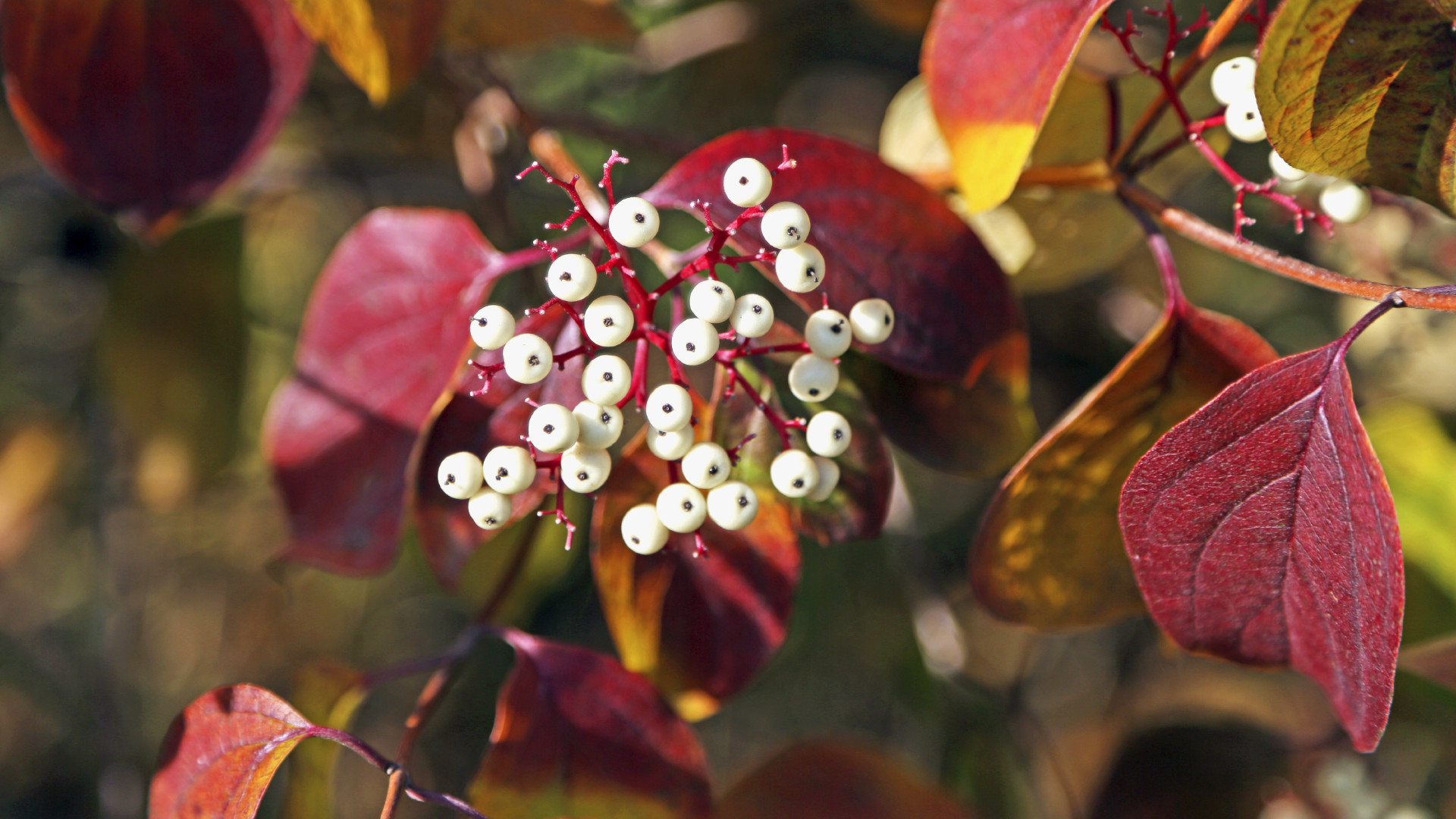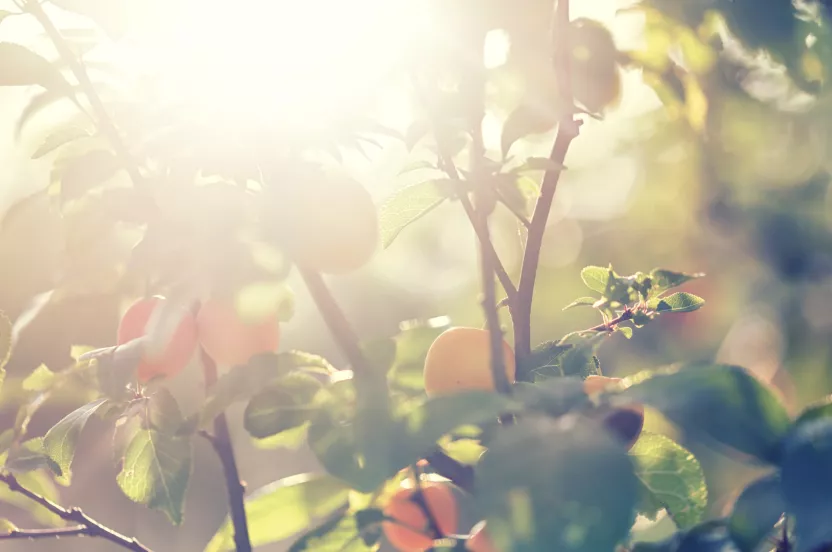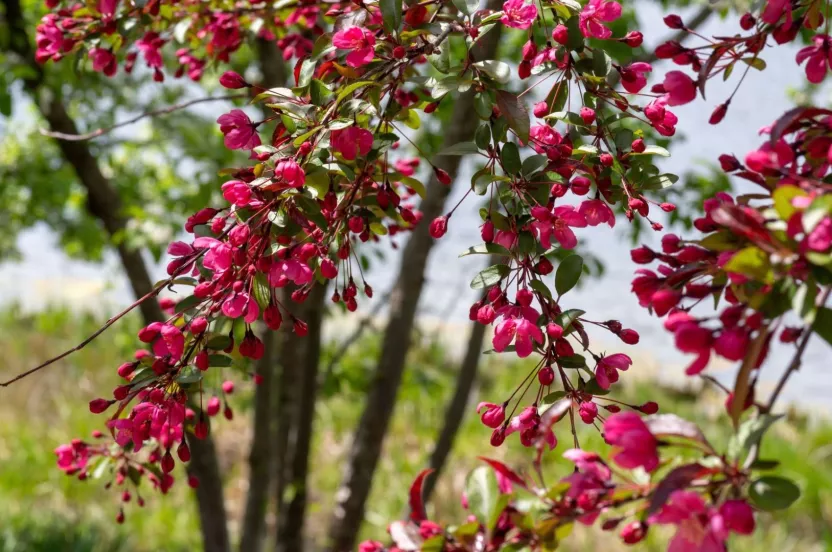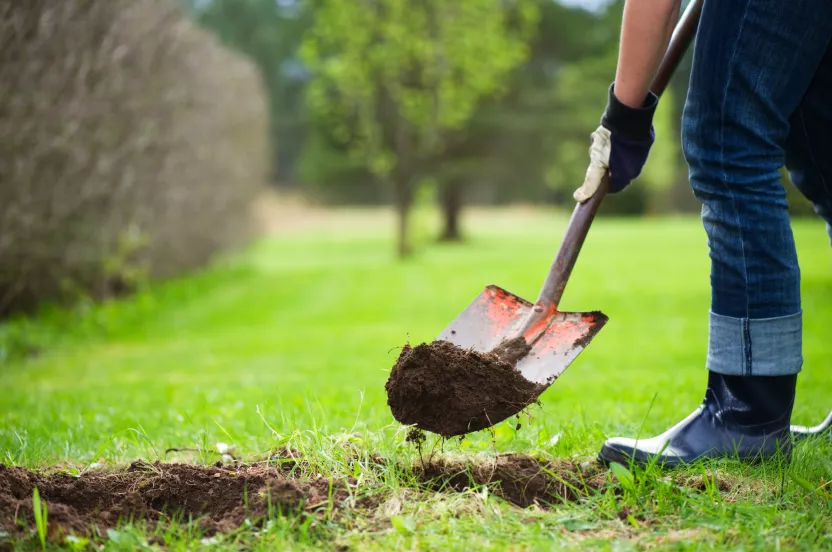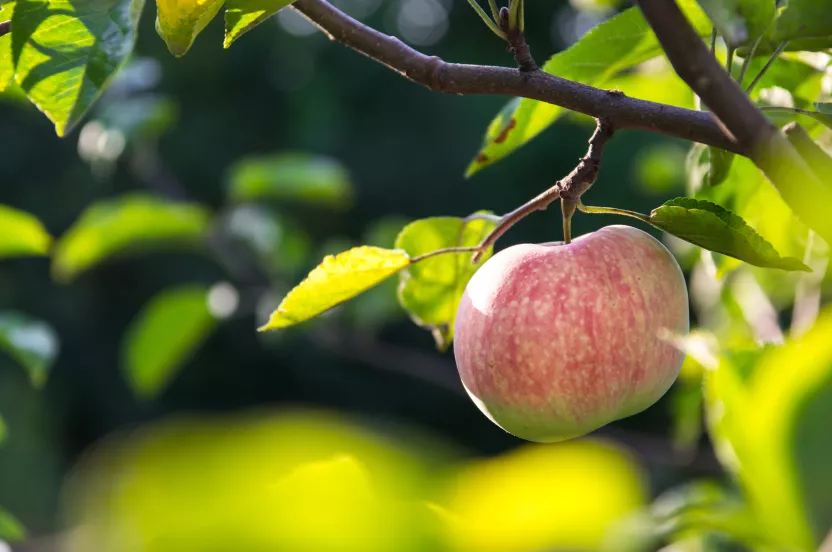Now live: The 2025 Canopy Report. Learn how Americans see trees. GET THE REPORT
Trees are great landscaping tools to beautifying your yard, creating privacy, and adding color. Numerous factors go into deciding what tree is suitable for your yard. Planting the right tree in the right place is crucial for the health of your trees, and for the safety of nearby structures. There are trees suitable for every landscape, including those with limited space.
Check out these small landscape trees that are perfect for adding color in smaller yards.
Sargent Crabapple Malus sargentii
This compact landscape tree is a spring star, with abundant clusters of fragrant white flowers making their appearance in May. Its dense, spreading crown and zigzagging branches add to the appeal, often making the tree wider than it is tall.
Because of its size, the Sargent crabapple is useful for planting under utility lines, in confined yards, as privacy screens and hedges and on sloping ground. It is also a popular choice for bonsai.
Kousa Dogwood Cornus kousa
Dogwood trees are widely known for their delicate beauty, and the kousa variety adds a toughness that makes this species an excellent choice for home landscapes and urban areas. The tree also makes a visual contribution year-round. In spring, it produces a heavenly array of star-like blooms. In summer, its intriguing canopy of layered branches provides shade and beauty. In autumn, it offers spectacular bright red color. Even in winter, this tree has an appeal all its own with bark that resembles a jigsaw puzzle.
Redosier Dogwood Cornus sericea
The redosier dogwood is loved by gardeners, landscapers and homeowners for its hardiness and versatility. It can grow in a myriad of conditions, including wet soil. Its thicket-forming habit makes it a great hedge option. And the fibrous root system provides effective erosion control on banks and slopes.
The biggest selling point, though, is the shrub’s deep red stems. This vibrant hue remains through winter, creating a pop of color in the snowy, gray months.
Downy Serviceberry Amelanchier arborea
This tree is an all-season beauty. Early in the spring, beautiful white clusters of blooms set it off against the new green of spring. Vivid red- and gold-hued foliage graces the landscape in the fall. And plump red berries are a favorite of birds in summer. The berries are also popular with the human crowd for pies, preserves and fresh eating.
Emerald Arborvitae Thuja occidentalis 'Emerald'
Shimmering emerald green foliage with a classic narrow, pyramidal form make the emerald arborvitae attractive in all seasons. And unlike other arborvitaes, this cultivar keeps its lustrous color even in the cold winter months.
The slow-growing emerald arborvitae is great for specimen or accent planting, hedges, privacy screens and shelterbelts. It also makes a good foundation plant.
Here is a list of other small trees, or shrubs that can be pruned into trees.
| Sargent Crabapple | 6′ |
10′ |
| Purpleleaf Sand Cherry | 7′ | 10′ |
| Ann Magnolia | 8′ | 10′ |
| American Mountainash | 10′ | 30′ |
| Emerald Arborvitae | 10′ | 15′ |
| Pee Gee Hydrangea | 10′ | 20′ |
| Jane Magnolia | 10′ | 15′ |
| Sweetbay Magnolia | 10′ | 20′ |
| Smoke Tree | 10′ | 15′ |
| Japanese Red Maple | 15′ | 25′ |
| Prairefire Flowering Crab | 15′ | 20′ |
| Star Magnolia | 15′ | 20′ |
| Downy Serviceberry | 15′ | 25′ |
| Tatarian Maple | 15′ | 20′ |
| Red Cloud Dogwood | 15′ | 20′ |
| Fosters Holly | 15′ | 25′ |
| Centennial Star Magnolia | 15′ | 25′ |
| Kousa Dogwood | 15′ | 25′ |
| Mugo Pine | 20′ | 25′ |
| White Dogwood | 20′ | 25′ |
| Red Dogwood | 20′ | 25′ |
| Pink Dogwood | 20′ | 25′ |
These landscape trees will add color and shade to your yard for years to come. Make sure the trees you plant are suitable for your hardiness zone and that they will have the necessary space to thrive. Learn more tree planting & care tips to guide you through selecting and maintaining the right tree.
